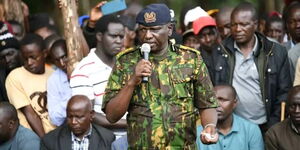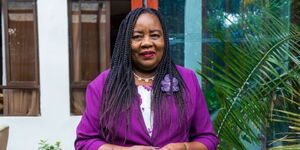A break from the doom and gloom occasioned by the Covid-19 pandemic came in the form of a viral video of Kenyans dancing at a quarantine facility that surfaced on Monday, June 1.
In a hospital gown, one of those in the ward excitedly got up as he started dancing to Phone Stress by Busy Signal, a popular Dancehall tune and a favorite among odi dancers.
As he continued with the groove, other patients in the ward joined in, each showing off their moves as they beckoned a health worker in full Personal Protective Equipment (PPE) to join in.
The nurse stole the show and had the ward watching as she happily odi danced to the tune, with other dancing patients urging her on in the background.
Odi dancing was made popular by young Kenyans inventing moves to Dancehall songs, and moved into the mainstream thanks to a hit of the same name by Timeless Noel. It became entrenched in the Gengetone music genre that subsequently emerged in 2018 and took over the charts.
The video of the dancers in quarantine inspired a large section of Kenyans who took to social media to express the joy and hope it brought them.
Particularly, the video was credited with helping combat stigma brought about by the pandemic even as the government reiterates messaging against stigmatization of those infected with Covid-19 or in quarantine.
Those in quarantine have faced stigma even after leaving the facilities Covid-19 free, with many friends, relatives and neighbors afraid of associating with them in fear of contracting the disease.
Some of those who arrived in the country from foreign nations and were subjected to mandatory quarantine for 14 days have recounted their struggles in re-integrating with their family, friends and communities.
Common complaints include the fact that in places such as home, no one wants to touch what they have touched and they are often confined to separate spaces.
According to the World Health Organization (WHO), social stigma is the negative association between a person or group of people who share certain characteristics.
In the Covid-19 scenario, patients may be labelled, stereotyped, discriminated against, treated separately, and experience loss of status.
This stigma, WHO explains, is predicated on the fact that it is a new disease, the fear of the unknown and the ability to associate it with 'others'.












